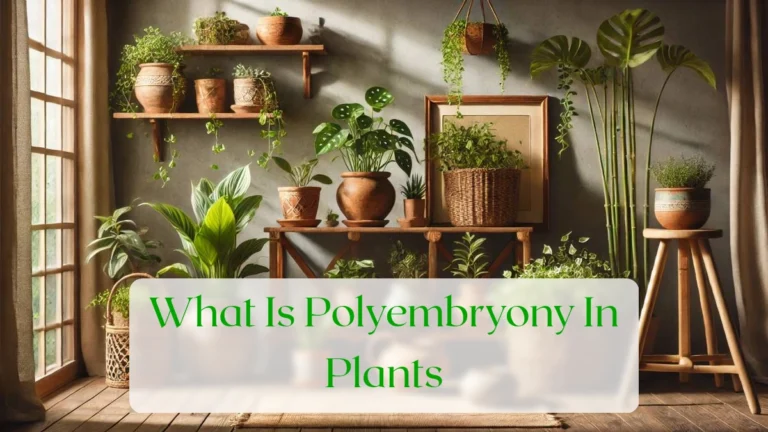Discover the hidden healing power in your backyard! This guide explores the amazing medicinal plants found in West Bengal. Learn how to identify, use, and benefit from them safely. We’ll cover traditional uses, modern research, and practical applications, uncovering the rich botanical heritage of West Bengal and its powerful medicinal plants.
Top 5 Medicinal Plants of West Bengal You Should Know
West Bengal boasts a treasure trove of medicinal plants, each with its unique healing properties. Let’s delve into five you should know:
Tulsi (Holy Basil): Benefits & Uses
Tulsi, revered in India as a sacred plant, is a powerhouse of health benefits. Its numerous antioxidants combat free radicals, boosting your immunity and reducing inflammation. Traditionally used for respiratory ailments, modern research confirms its efficacy in fighting infections.
Neem (Indian Lilac): A Natural Remedy
Neem, or Indian Lilac, has been used for centuries as a natural remedy. Its antibacterial and antifungal properties make it effective in treating various skin conditions and infections. From fighting acne to promoting wound healing, neem’s versatility is remarkable.
Amla (Indian Gooseberry): Packed with Vitamin C
Amla is an excellent source of Vitamin C, crucial for boosting immunity and overall wellness. Known to enhance digestive health, amla also promotes healthy hair growth. Regular consumption can significantly improve your well-being.
Turmeric: The Golden Spice of Health
The Golden Spice, Turmeric, is celebrated for its anti-inflammatory and antioxidant properties, bolstering brain function and maintaining overall health. A cornerstone of Ayurvedic medicine, Turmeric’s role in various therapeutic applications makes it indispensable.
Ginger: For Digestive & Inflammatory Relief
Ginger is a natural remedy commonly used for digestive issues and to control inflammation. Used traditionally to alleviate nausea, ginger also improves digestion and possesses remarkable anti-inflammatory capabilities. Soothe your stomach after meals and reduce digestive discomfort.
Read more: medicinal plants of jammu and kashmir
Where to Find Medicinal Plants in West Bengal
Sourcing medicinal plants ethically and responsibly is crucial. Let’s discover where to find these marvels:
Local Markets & Herbal Shops
Local markets and herbal shops are excellent sources for procuring medicinal plants. Engage in careful scrutiny of prices and confirm quality from a respected and knowledgeable vendor. Establish a solid trust with shops which have an established clientele and history.
Cultivating Your Own Medicinal Garden
Cultivating your own garden guarantees both supply and enhanced quality control! Choosing varieties suitable for West Bengal climatological conditions and soil quality significantly improves growth. Learn the essentials to maintain healthy plants thriving in this rich botanical environment alongside your home..
Responsible Harvesting & Sustainability
Remember ethical considerations in our plant harvesting. Preserving the health of West Bengal’s natural habitat is absolutely key for long-term access to healing plants like these.
Traditional Uses vs. Modern Research
Exploring both the long-held traditional utility of medicinal plants coupled with today’s scientific investigations, we build a truly integrated understanding of their usage:
Ayurvedic Traditions in West Bengal
For generations, West Bengali communities have embedded ancestral knowledge within indigenous medical practices which form an integral part of Ayurvedic traditions . Explore the fascinating annals of knowledge for potent and time-tested remedies . Harness the wisdom of past generations and understand this deep wealth of heritage practices.
Scientific Studies on West Bengal’s Medicinal Plants
Contemporary analyses, through rigorous laboratory studies and clinical trials, corroborate long-held folk wisdom which underlines their efficacy. Ongoing work by dedicated groups constantly reveals their powerful value. Our comprehension deepens year-on-year building towards a superior understanding of their utilization.
Read more: medicinal plants in rajasthan
Safety Precautions & Potential Side Effects
The healing embrace of nature demands attentive use:
Consulting with Experts (Ayurvedic practitioners)
As is true for any element used internally or externally, always consult an expert, preferably an Ayurvedic practitioner or physician versed such plant knowledge. Identifying drug interactions is immensely important for wellbeing as is determining appropriate care according to any prevailing illness.
Proper Dosage & Preparation
Accurately measuring exact dosage is pivotal and avoid excess consumption at all costs. Comprehending the most relevant usage – teas, pastes – for the best results relies on accurate knowledge; gain this to maximize plant potential.
Allergic Reactions & Contraindications
Understand and acknowledge these vital parameters. Allergic manifestations and usage complications relating any particular health complications demand awareness, knowledge and appropriate medical interventions for safety. Learn and observe precautions for responsible intake in every situation
Recipes & Home Remedies Using West Bengal’s Medicinal Plants
Let’s explore some simple yet effective home remedies:
Simple Turmeric Paste for Inflammation
Mix ½ cm of turmeric powder into 2ml lemon juice form effective anti inflammatory treatment where applicable directly to impacted areas.
Tulsi Tea for Immunity Boost
Infuse a teaspoonful Tulasi leaves for at least 10 minutes within hot water. Drink as desired
Amla Juice for Hair Health
Blend a generous quantity amla mixed into water to desired consistence. Consume freely
Read more: medicinal plants in tamilnadu
FAQ
For frequently asked questions, we offer guidance to address common queries :
Are these plants safe for pregnant women?
Always confirm prior to use; consultation and verification with an medical specialist essential to avoid complications
Where can I find certified herbal products?
Local herbal shops are usually trustworthy which have an effective, well-established presence.
What are the best times of year to harvest these plants?
Check regional agricultural resources or consult nearby local experts. Seasonal and optimum growth stages can vary dependant on location or specific plant details.
How can I store medicinal plants effectively?
Dry and airtight storage prevents moisture and maintains potency at a peak status. Store securely removed from high levels of humidity, away from intense sunlight, within adequately shaded ambient condition conditions
Are there any interactions with other medications?
Always acquire this data verified through a medical consultant specifically for each personal circumstance regarding prescription and usage interaction complications
Conclusion
West Bengal’s medicinal plants offer a wealth of therapeutic capabilities which have assisted humanity over eons , if employed responsibly, according correct techniques which avoid possible harm. Share your experiences via comment so we better serve you by understanding successes and other perspectives! Always remember responsible ethical consideration within plant procurement when engaging with medicine from the natural botanical world.



